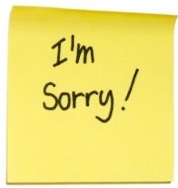Employee Dress Codes and Brand Image
February 2, 2011Restaurants, grocery stores and banks all have something in common – an employee dress code. Some companies, such as UBS in Sweden, have traditionally taken dress codes to higher levels. A 44-page guide for employees contains specific directives about employee nail care, glasses and even underwear. Recently, though, UBS announced that it will change its strict policies to more practical dress guidelines. While most companies don’t manage company appearance down to such small details, many have some type of code in place, whether it includes wearing name tags or collared shirts, or directing employees not to wear jeans, nose rings or multiple earrings.
Restaurant Sales Rebounding Slower than Retail and Automotive Sales did in 2010
February 2, 2011Nation's Restaurant News reports that casual restaurants grew sales at 1% in 2010, and projected growth annually for 2011 is not projected to be much higher. Some customers that previously dined out frequently now scale back restaurant visits or limit them to special occasions.
Customer Experience Goes Beyond Local or National
February 2, 2011“Buy Local” campaigns communicate convincing reasons why residents should shop or dine at locally-owned stores, including support of the local economy and reduction of environmental footprint, since buyers don’t have to travel as far to make purchases or dine out. The campaigns emphasize that local company employees usually know your name and make shopping or dining at their business a far more personal and satisfying experience.
25 Resolutions for Customer-focused Organizations
January 13, 2011-
Speak customer, not industry jargon. Make things easy: don’t make your customer have to understand your business. Industry jargon and double talk don’t get or keep customers. While some disclaimers may be legal requirements, ensure your staff does not go too far. There’s a nice, achievable balance between industry jargon and talking down to a customer.
-
How Do You Say, “I’m Sorry” to Customers?
December 22, 2010Good service can break down more easily during the busy holiday season, making it even more important to know how to say “I'm sorry” to customers. Inc. Magazine’s article, “How do you say I’m sorry?” highlights the importance of handling customer issues smoothly in the worst possible scenario. Diners at the upscale restaurant, Jean Georges in New York, encountered a roach on their table. The restaurant manager quickly relocated them to another table and their meal was on the house. What does your company do when faced with tough customer situations? Do you train staff on how to appease customers when they are dissatisfied?

 Restaurants, grocery stores and banks all have something in common – an employee dress code. Some companies, such as
Restaurants, grocery stores and banks all have something in common – an employee dress code. Some companies, such as 
 “Buy Local” campaigns communicate convincing reasons why residents should shop or dine at locally-owned stores, including support of the local economy and reduction of environmental footprint, since buyers don’t have to travel as far to make purchases or dine out. The campaigns emphasize that local company employees usually know your name and make shopping or dining at their business a far more personal and satisfying experience.
“Buy Local” campaigns communicate convincing reasons why residents should shop or dine at locally-owned stores, including support of the local economy and reduction of environmental footprint, since buyers don’t have to travel as far to make purchases or dine out. The campaigns emphasize that local company employees usually know your name and make shopping or dining at their business a far more personal and satisfying experience. Speak customer, not industry jargon. Make things easy: don’t make your customer have to understand your business. Industry jargon and double talk don’t get or keep customers. While some disclaimers may be legal requirements, ensure your staff does not go too far. There’s a nice, achievable balance between industry jargon and talking down to a customer.
Speak customer, not industry jargon. Make things easy: don’t make your customer have to understand your business. Industry jargon and double talk don’t get or keep customers. While some disclaimers may be legal requirements, ensure your staff does not go too far. There’s a nice, achievable balance between industry jargon and talking down to a customer. Good service can break down more easily during the busy holiday season, making it even more important to know how to say “I'm sorry” to customers. Inc. Magazine’s article,
Good service can break down more easily during the busy holiday season, making it even more important to know how to say “I'm sorry” to customers. Inc. Magazine’s article,